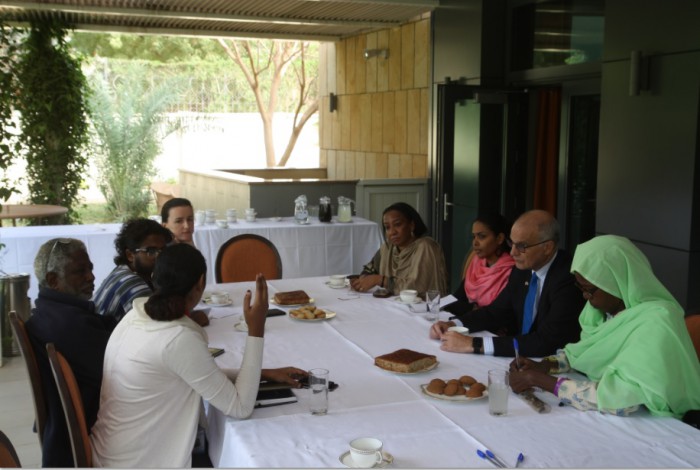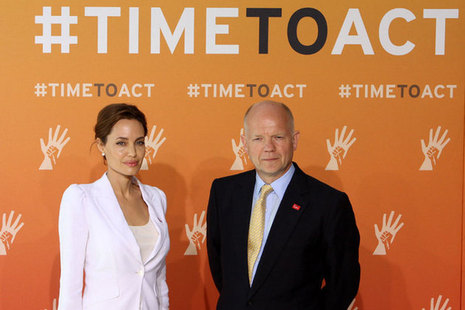7th December 2015 Khartoum
16 days of Activism

25th November marked International Day for the Elimination of Violence against Women and the start of 16 days of activism against gender based violence. Globally one in three women are subject to violence. That represents one billion women worldwide-which is where the global campaign ‘One Billion Rising’, to address violence against women, gets its name. The campaign, which has been taking place in Sudan for the past three years at Ahfad University for Women, has raised the profile of the positive steps being taken in Sudan to address violence against women. One of the strengths of One Billion Rising is in engaging young people through its use of creative mediums, such as song and dance as powerful advocacy tools (see link to Sudanese version of the song here). Each year, the campaign focuses on a relevant theme and in 2015 the campaign sought to engage men and boys in being part of the solution for ending violence against women. This is just the start of what needs to be a collective engagement with men and boys in order to address violence against women.
Last Thursday, as part of sixteen days of activism, I welcomed civil society members to discuss men’s role in addressing violence against women and in particular sexual violence in conflict. The United Kingdom has made a commitment to address this issue in the Global Summit to End Sexual Violence in Conflict in June 2014 and we continue to work on this through our programmes.

This was the largest gathering ever brought together on the subject with over 100 NGO’s and international partners taking part alongside 48 Foreign Ministers and over 600 government delegates from 113 countries.
Research has shown that some of the root causes of violence against women include harmful masculine behaviours and the acceptance of violence as a social norm. Therefore, it is vital that we seek to engage men and boys in our advocacy and to promote a way for young men and boys to affirm their identity as allies with women, and to not promote a weak masculinity based on the subjugation of women and girls through violence.
As noted by our guests in this discussion, the task of changing attitudes in men and boys is not easy. Often, young men are up against restrictive social norms where even slight deviation will induce ridicule from their peers. Protection of women and girls in conflict areas can be even more complicated. Families are often faced with difficult choices, where marrying girls early is seen as preferable to leaving their young girls vulnerable to rape from a stranger; or where sending a female to carry out tasks outside the home – putting her in a vulnerable situation – is preferable to sending a male who could be at risk of being killed.

However, although the situation is complicated, we can make a difference by having the courage, regardless of gender, to take a stand against violence against women. It is a step in the right direction to have these difficult discussions, to examine the root causes of sexual and gender based violence against women and to be proud to be an ally and activist in the area of women’s rights. 16 days of activism, offers the opportunity to show your support and initiate those conversations in Sudan. We as an Embassy look forward to supporting more creative projects on this issue as well as next year’s One Billion Rising.
Thanks. This is the sort of common ground in which the UK could help.I saw the film suffragettes last week and realised that there was resistance to the right of women to vote.Progress does not happen at a stroke or overnight.Both Lord Kitchener and Winston Churchill were against the suffragettes.
The Sudan has now a better percentage of women parliamentarians than the UK;but we have other problems like illiteracy and FGM.